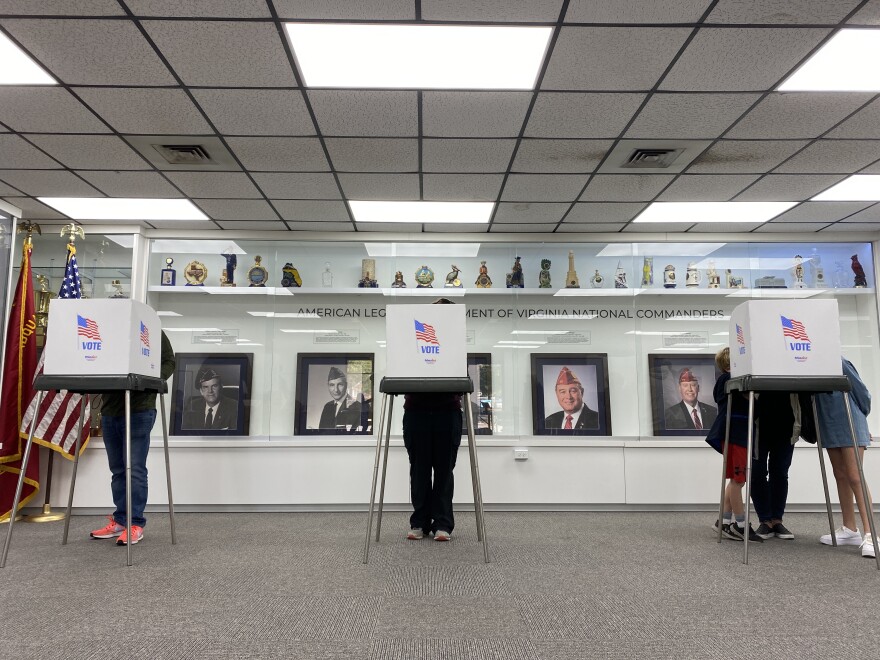Virginia is among the few states to permanently bar convicted felons from voting. A challenge to that ban went before a federal court Tuesday.
Virginia’s ban on felon voting dates to a 1902 amendment to the state Constitution.
30 years earlier the Virginia Readmission Act, or VRA, was passed by Congress which allowed the Commonwealth to re-enter the Union after the Civil War, but barred state laws that limit Black voting.
And while Tuesday’s hearing mostly focused on whether or not the plaintiff felons had the right to sue over disenfranchisement, it often drifted into the larger issue of post-Reconstruction lawmaking that targeted Black voters.
Here’s Circuit Judge Paul Niemeyer, one of the Richmond-based Fourth Circuit Court of Appeals’ more conservative jurists, suggesting the VRA could have been violated by Virginia since the 1902 amendment.
“Here there’s a fundamental right to vote, and the right to vote was guaranteed by the federal act and has been infringed by the Virginia Constitution,” he said.
Judges often ask questions or propose theories that may run contrary to their legal thinking, but Niemeyer repeated his concerns multiple times during the 40-minute hearing.
Kevin Gallagher is with the Virginia Attorney General’s Office and defended the amendment. He said the VRA was limited in scope, and its only purpose was to admit Virginia into the Union via representation in Congress. And if that’s true, he argued, the only remedy was for Congress itself to challenge Virginia’s offending law and remove the state from the Union.
“You have to look at the nature of what the Virginia Readmission Act is — it is a contract between Congress and Virginia,” Gallagher told the panel.
But Circuit Judge Roger Gregory, long an advocate of civil rights, pushed back.
“It’s not a contract in that sense, it’s a contract to make our country after the Civil War, to try and heal our nation’s wounds," Gregory said. "And this is a demonstrable way to show everyone should be treated equally potentially [through] franchisement.”
Attempts to reach the office of Virginia Attorney General Jason Miyares for comment after the hearing were not returned.
The judges did not signal when they intended to rule on the matter.
This report, provided by Virginia Public Radio, was made possible with support from the Virginia Education Association.


